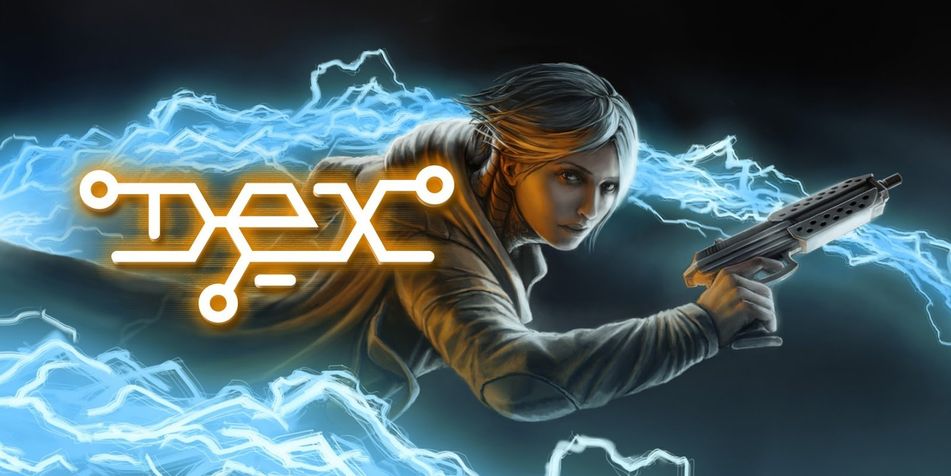Dex
I’m at that weird point in my life where the cultural zeitgeist is shifting away from nostalgia for things that existed before I was born, and is moving into my childhood. I know this is a consequence of the twenty year nostalgia cycle moving into a forty year cycle (this is not me sobbing in a corner at the reality of my own mortality), but it’s still an odd thing to see. The 90s are nobody’s preferred decade because of how odd they are, and yet, here we are, mining them nonetheless.
The 90s are dead. Long live the 90s.
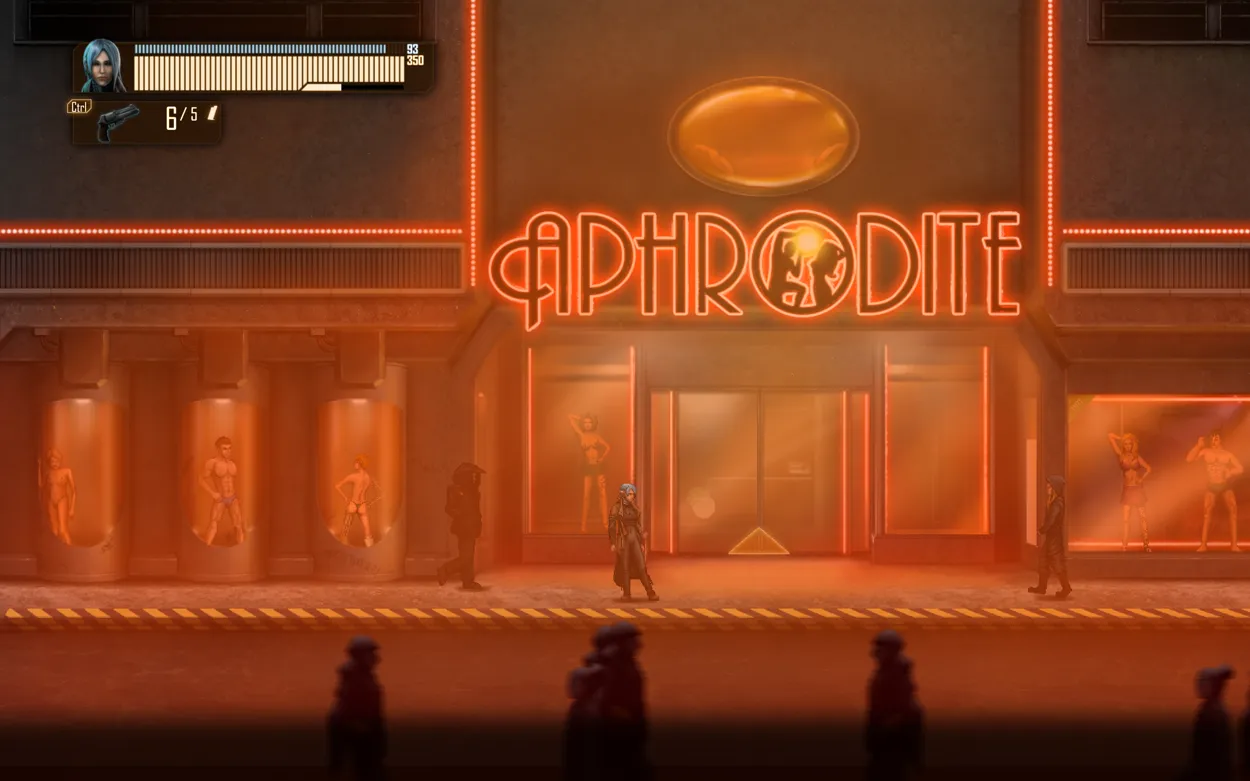 I’m just going to kick us off with some pixellated breasts, as was the fashion in the 90s.
I’m just going to kick us off with some pixellated breasts, as was the fashion in the 90s.
Dex is a side-scrolling action RPG straight out of the 90s. It is, of course, not literally straight out of the 90s - it was released in 2015 - but everything about it, from its plot to its structure to its combat, emphasise what its inspirations are and what it’s hoping the player will draw from it.
You play as Dex, a woman suddenly and unceremoniously awakened and tossed into a world of omniscient AIs, all-powerful corporations, and hacker collectives determined to do everything in their power to fight back against the inevitability of the corporate autocracy. With the fate of free will itself on the line, it’s up to Dex to stop the corporations and save Harbor Prime.
It is, as I said, a plot straight out of the 90s. Hacker collectives, that the inevitable corporate takeover is, in fact, evitable, leather trenchcoats, it’s all very, very 90s. It is, in a way, deeply sweet, and feels like an artefact of a bygone age while still very clearly being a product of the modern world.
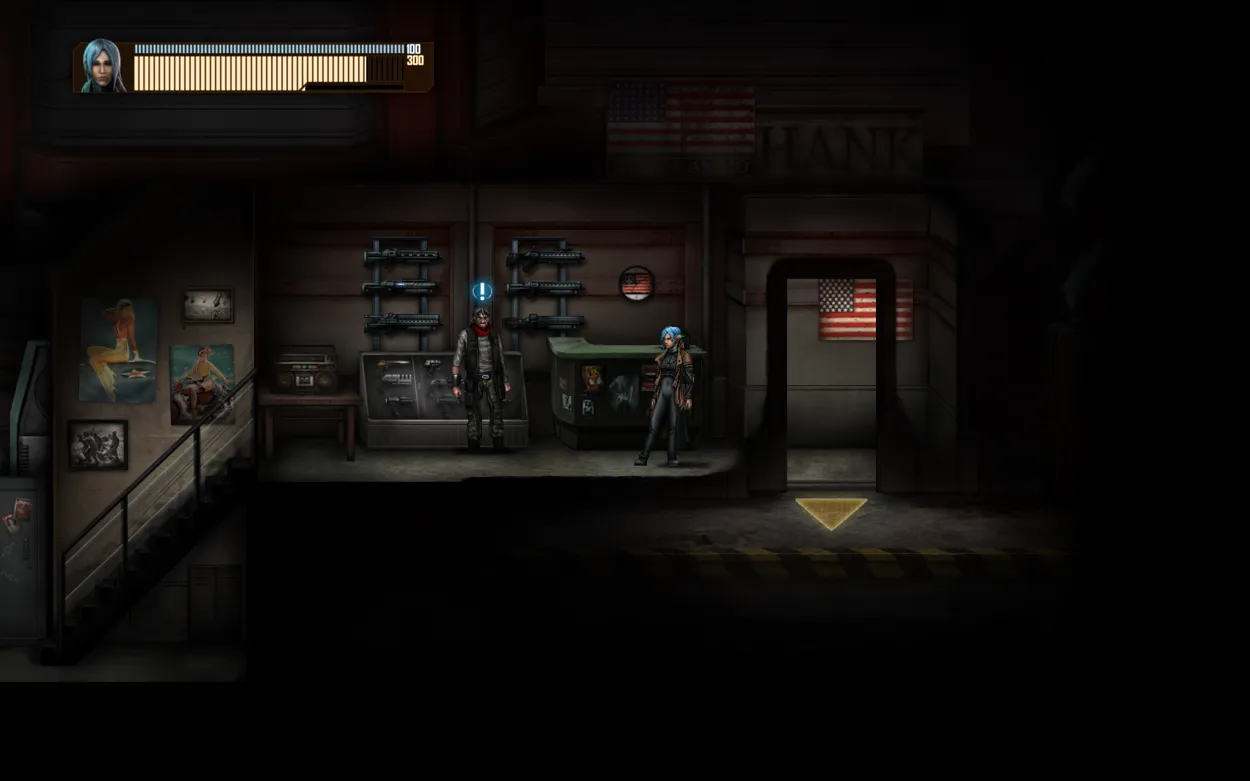 Guess how I can tell this is a gun store.
Guess how I can tell this is a gun store.
Throughout my Dex playthrough, the game I was most vividly reminded of was Beneath a Steel Sky . Like Dex, Beneath a Steel Sky is a sidescrolling action RPG set in a cyberpunk dystopia. It too features a protagonist who is the only one who can save his world, and it too explores how the dystopia came to be and the consequences of letting it persist and grow. Both also feature an expansive, engrossing world, interesting side characters, and a narrative that feels much bigger than it is.
At the risk of rehashing an old post, in my Beneath a Steel Sky review, I explored the nature of the game’s dystopia and what that said about how dystopias themselves have changed. Beneath a Steel Sky is a true 90s game, having been released in 1994, and its dystopia in many ways reflects that time period. It has an optimistic dystopia, one that can be undone with the right application of gumption, kindness, and prophecy.
Dex clearly emerged from the same vein as Beneath a Steel Sky, albeit twenty years later and with a whole world of game development behind it. Structurally, it closely resembles Beneath a Steel Sky, with its saviour protagonist and corporate dystopia. It’s in how it approaches this dystopia and what the future of humanity can actually look like in a post-autocracy world that the game’s true age shows through.
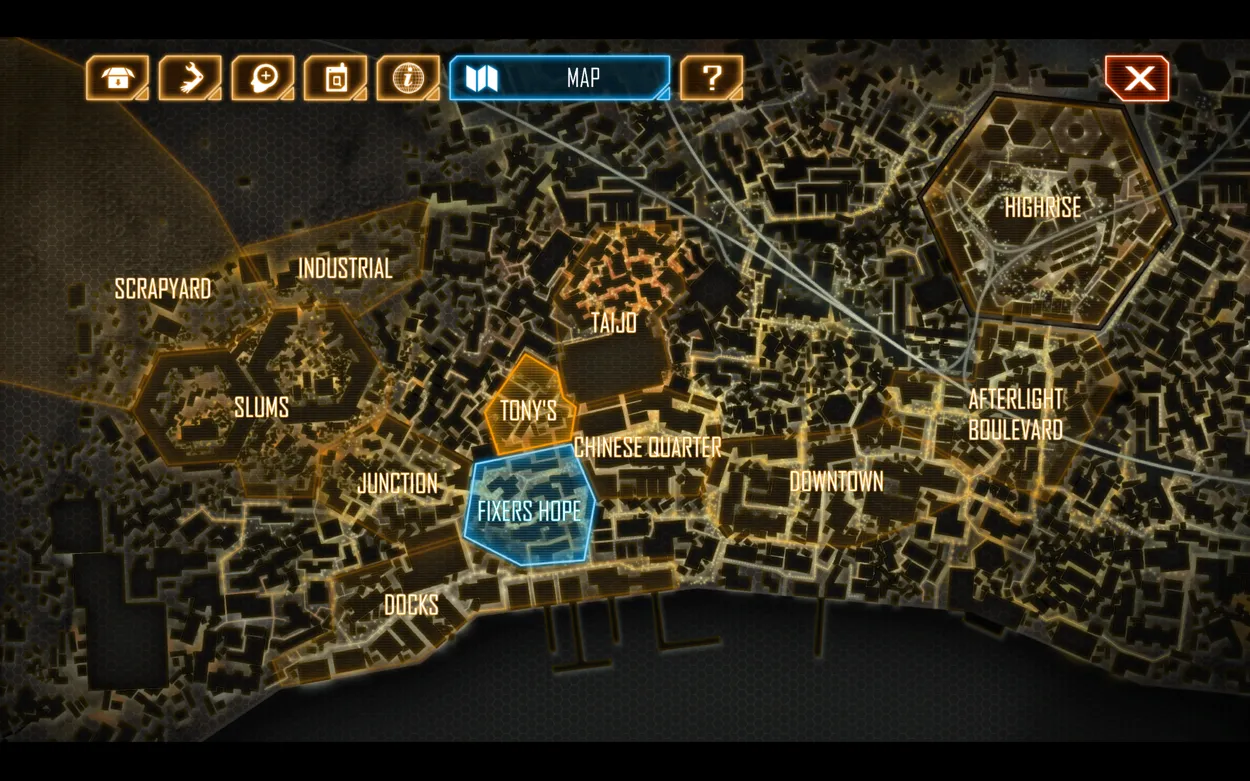 This game also has a map and fast travel, for which I am eternally grateful.
This game also has a map and fast travel, for which I am eternally grateful.
Part of what fascinated me in Beneath a Steel Sky was the optimism within its dystopia. The dystopia of Beneath a Steel Sky could be beaten, and a better world could emerge. This idea that a better world can be built from the ashes of the old is an almost uniquely 90s idea. It’s an ethos derived from the post-Soviet, pre-9/11 world, where the only thing we had to fear was another bout of the Macarena.
This is not the ethos of Dex. There is no rebuilding from the ashes in Dex, just the scraping together of what’s left of one’s humanity from the dregs autocracy has left behind. For all the lightheartedness and richness of the world Dex builds, the fundamental core cannot recapture the naivety that made the 90s what they were. The game’s ending and the inevitable march towards it are very much products of a world that understands there are no more happy endings, just variations on a sickening theme. As much as I enjoyed basking in the nostalgia that Dex built, feeling that ending creeping in served as a reminder that nostalgia is just that - a rose-tinted version of the past. There is no reclamation of that sense of innocence. There is no going back.
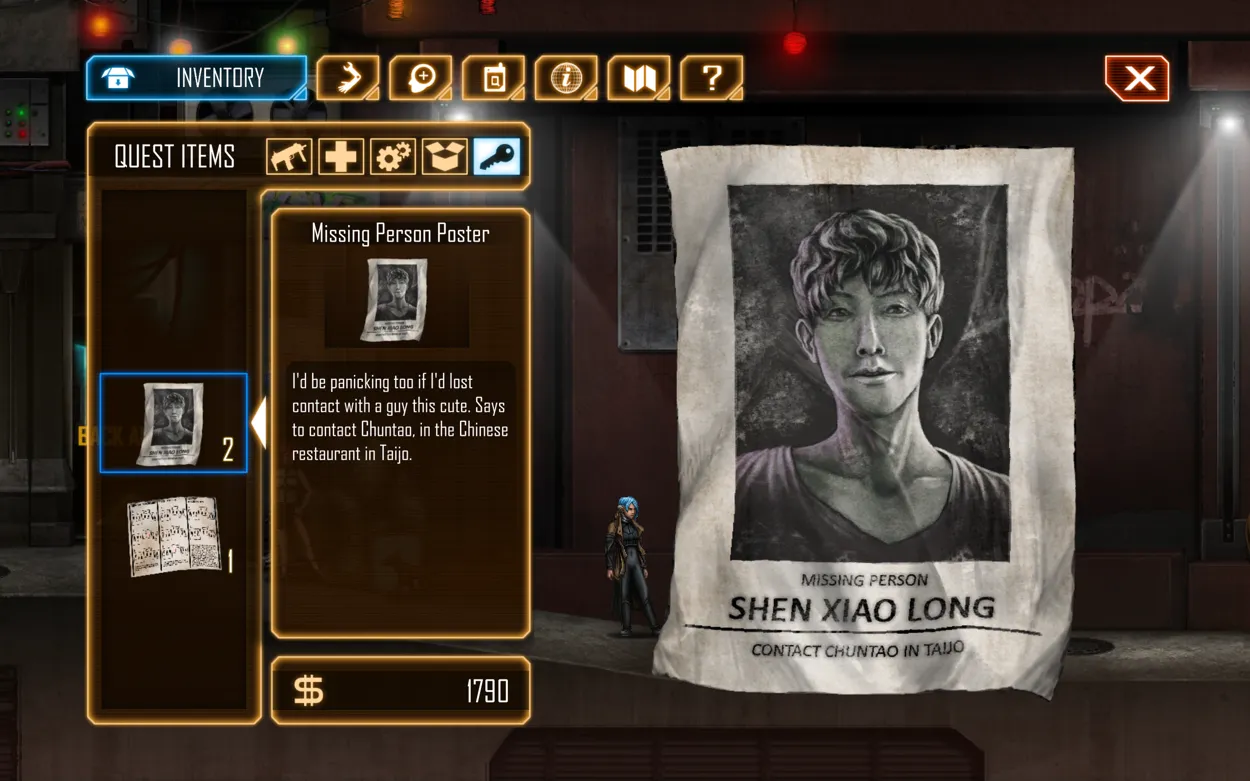 Okay, but it is a nice poster.
Okay, but it is a nice poster.
That inability to truly go back into the past doesn’t stop Dex from trying, though, both thematically and mechanically. Dex is, once again, a 2D sidescrolling action RPG, complete with the sense that the game is one long corridor. There is some verticality, and the game includes some light platforming, but the bulk of Dex’s time is spent running from one location to another, chatting with people, solving problems, and investigating the various mysteries she encounters. These are staples of the game style, and absolutely trigger that sense of 90s nostalgia.
She also gets in fights. The fights are awful.
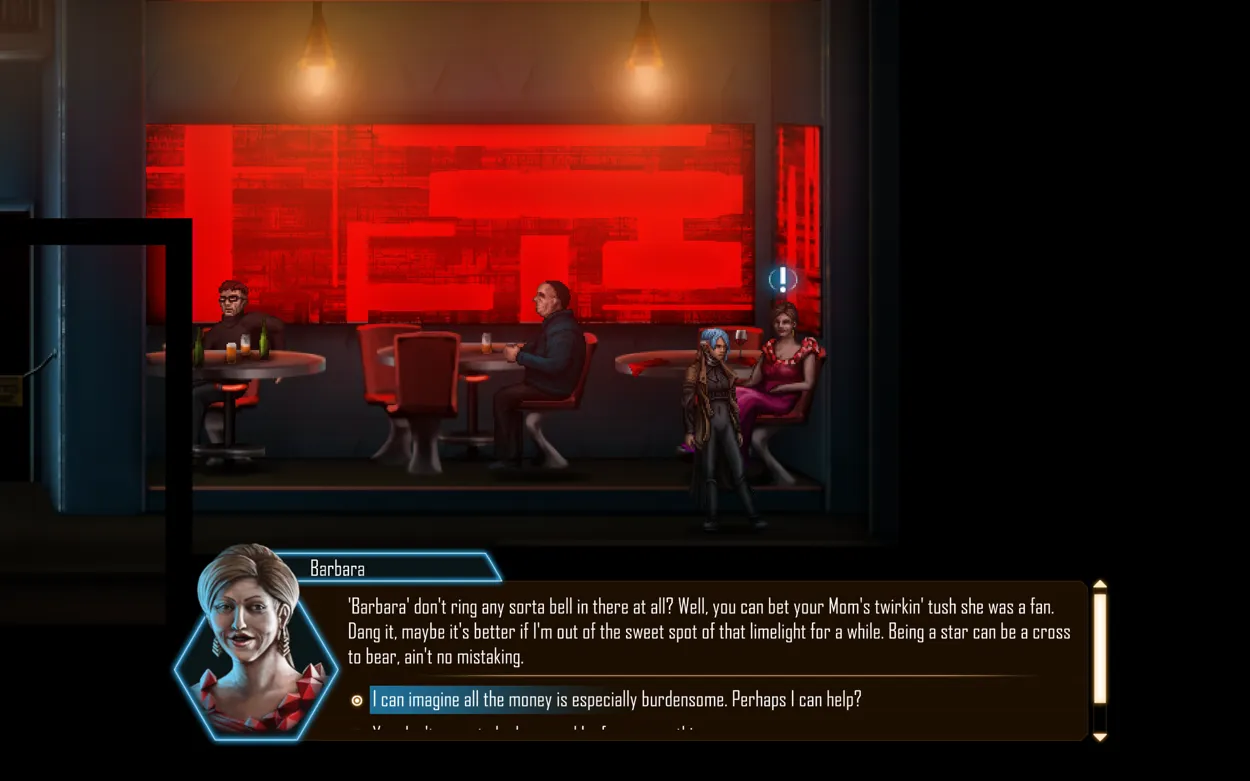 Now I’m having to picture my mother twerking. I didn’t need this.
Now I’m having to picture my mother twerking. I didn’t need this.
Combat is a core part of Dex’s gameplay, with multiple quests focusing on eliminating dens of enemies, or retrieving something that can only be found on the other end of a gun muzzle. Combat takes two forms - physical, with punching and gunplay, and digital, where Dex delves into digital domains, fighting off viruses and retrieving data.
Much like the rest of the game, Dex tries to maintain a 90s aesthetic in its combat structure, though this is a bit easier with the physical combat than the digital. However, in both cases, combat is an absolutely tedious slog to the point where I did everything I possibly could to avoid it.
Dex uses both ranged and melee combat mechanics. Its ranged mechanics rely on a variety of guns doing the generic aim and shoot thing, while also having a variety of bonuses depending on the type of gun. Its melee mechanics follow a similarly familiar pattern of punching, blocking, and dodging.
Both are tedious and abysmal in a way that feels like the worst evocation of 90s gameplay.
Guns take an eternity to aim and load, making them useless in many fights. The melee alternative, however, is underbaked, with punching being the only option. While players can invest skills to improve both guns and melee, the cost of that investment is high, and, in the case of melee, slight. That there are no melee weapons suggests the devs fully expected players to play with the ranged weapons. However, with how annoying guns are to use, especially on touchpad, the incentive to actually invest the skillpoints into ranged skills is minimal. I ended up avoiding combats, just sprinting through to the objective as much as I could.
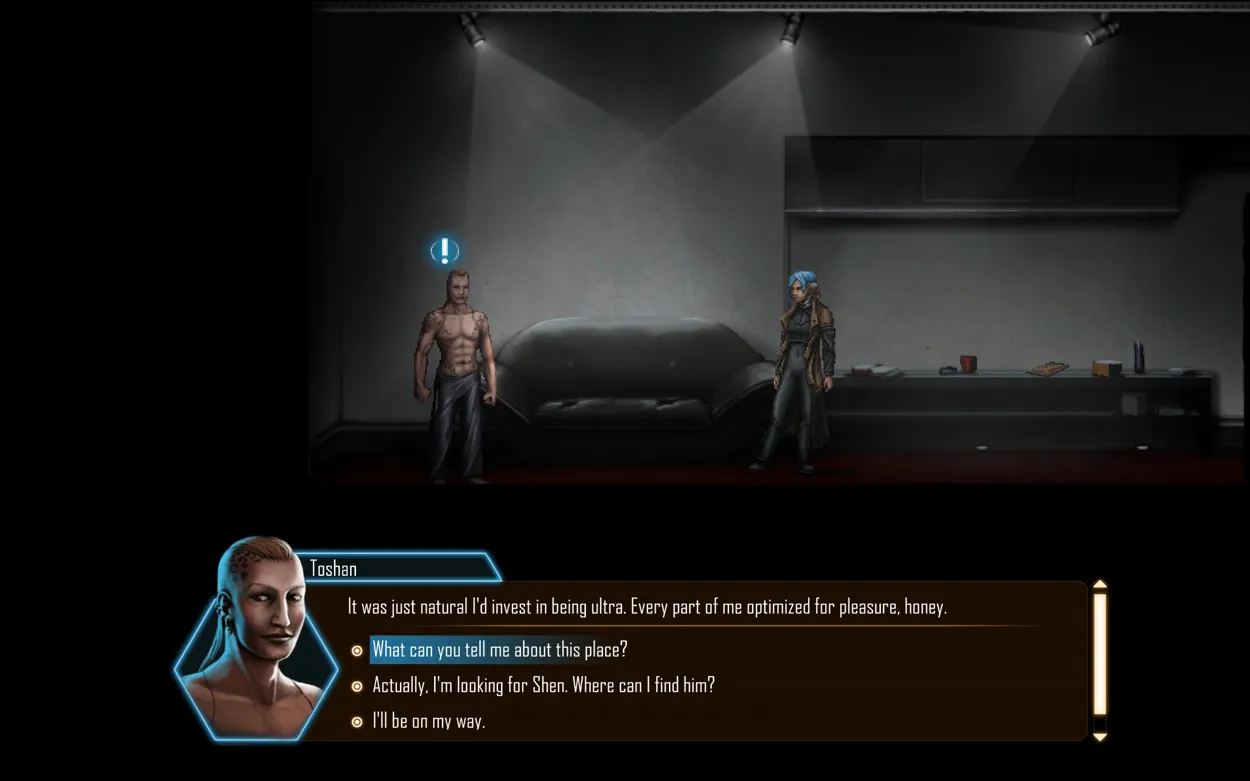 This is what I told my partner when I said I wanted a degree in philosophy. Not the pleasure part. The ultra part. Philosophy degrees are in no way optimised for pleasure.
This is what I told my partner when I said I wanted a degree in philosophy. Not the pleasure part. The ultra part. Philosophy degrees are in no way optimised for pleasure.
The digital combat system is the one area of the game that has not been dragged kicking and screaming out of its resting place in the 90s, instead being very clearly designed for this game specifically. In many ways, that works well for the game, with the digital system having more variety in its mechanics and fight structures than the physical combat. Here too, however, the combat gets tedious, with death being no real disincentive, and a limited number of only vaguely accessible abilities. This means that, much like with physical combat, I tried to avoid digital combat, and when it could no longer be avoided, I braced myself for a slog of an experience.
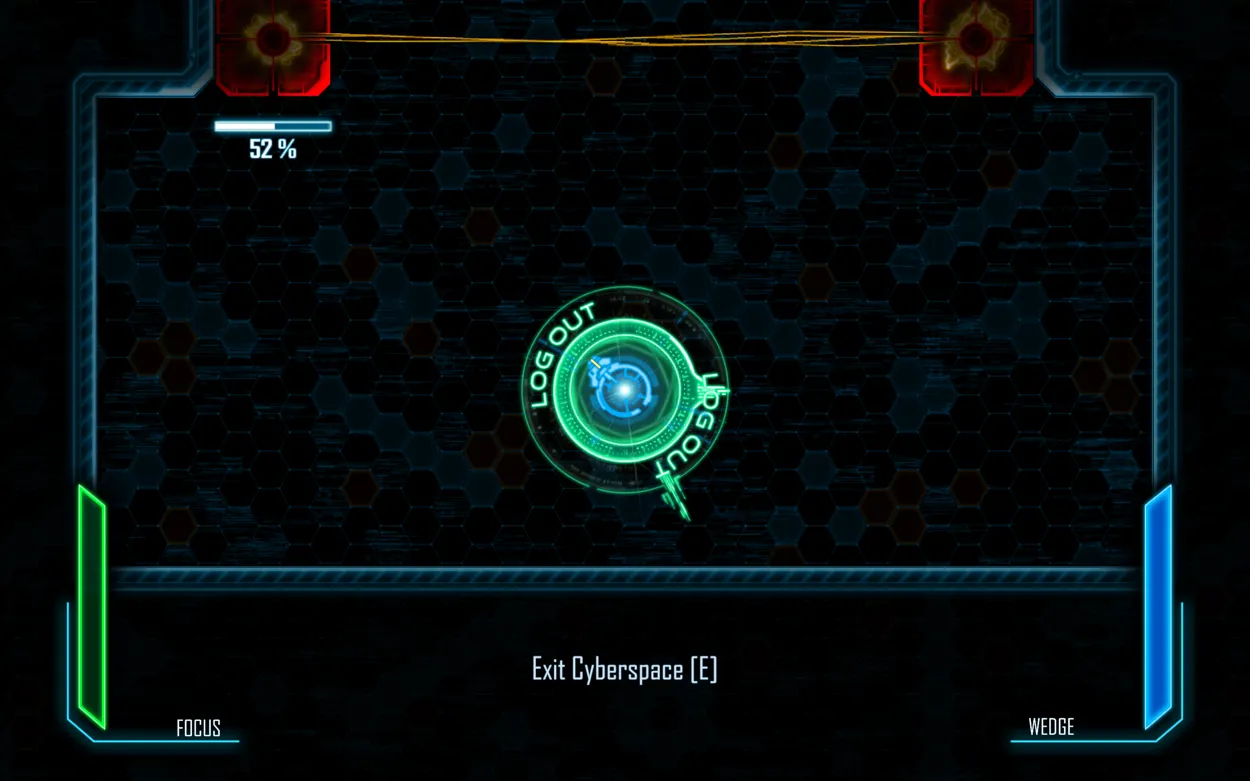 there is no true exit from cyberspace
there is no true exit from cyberspace
As charming as Dex is as a whole, it’s difficult to overlook the deep flaws that stem from its loving adherence to nostalgia. The reality of gaming is that we have moved past the mechanics and trends of the 90s. There is a reason combat is generally no longer fixed in 2D sidescrollers, and instead has become a more intricate and customised experience. Even then, Dex’s implementation of a 90s-esque combat system is shallow, leaving room for that fundamental mechanic to just be boring and annoying.
That’s the irony of nostalgia. As we don our rose-coloured glasses to look back at a more naive era, we see only the things that were beautiful. We see the optimism of Beneath a Steel Sky’s dystopia, but not the tedium of its moon logic. As Dex recreates the 90s, it does so by capturing both the positive and negative elements. Its story and world are lush and inviting. I wanted to get lost in Harbor Prime, and looked forward to loading the game up to see where the story would take me next. However, I also dreaded when it asked me to actually engage with the gameplay elements, like combat, knowing they were rough, and I would get frustrated and bored. The past is a multi-fanged beast, rolling over for belly scritches, but sinking in its fangs as soon as you try to capture that bliss.
Developer: Dreadlocks Ltd.
Genre: Action, Rpg
Year: 2015
Country: Czechia
Language: English
Play Time: 12-14 Hours
Youtube: https://youtu.be/dPCNKm4qmzM
